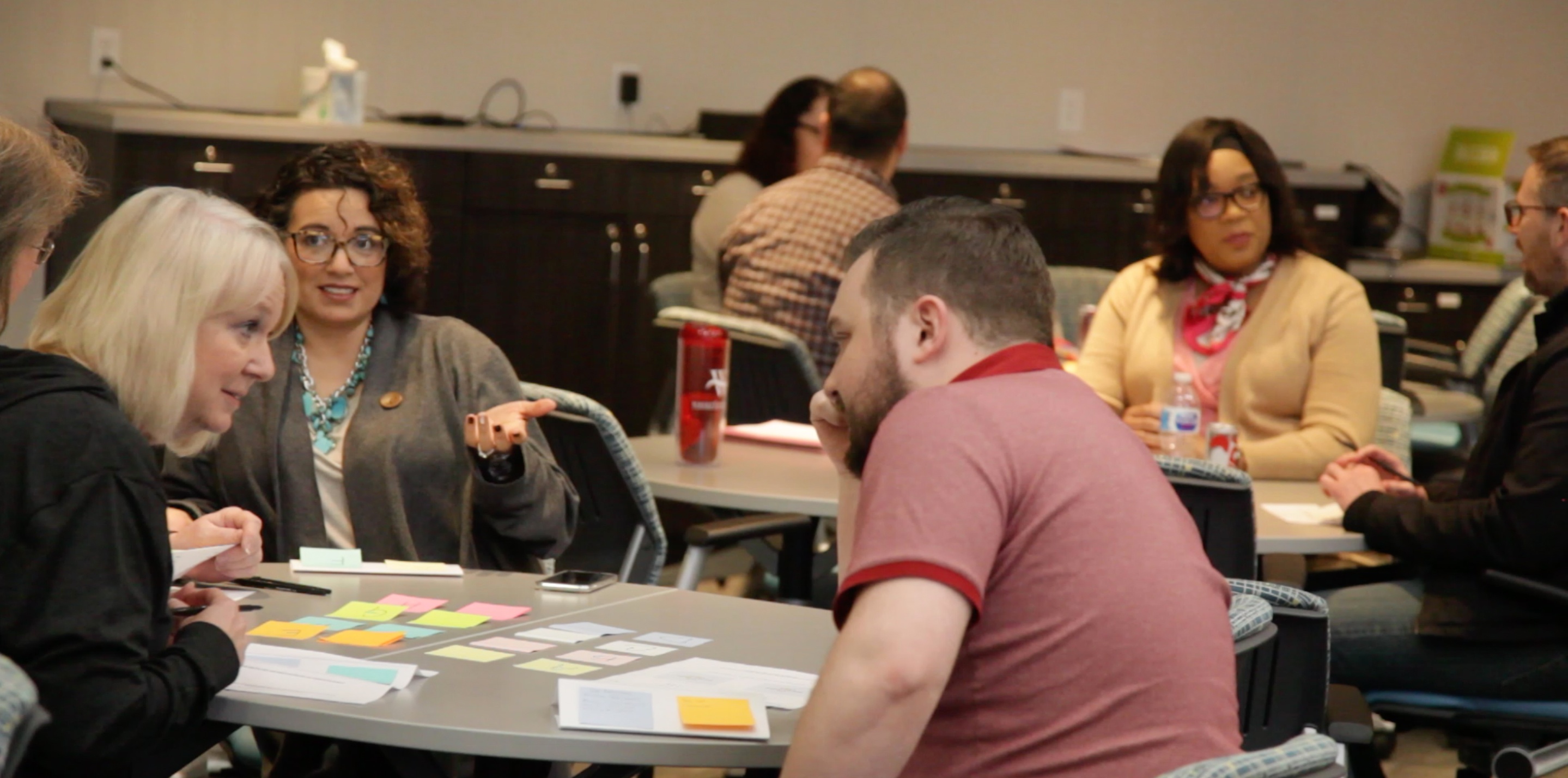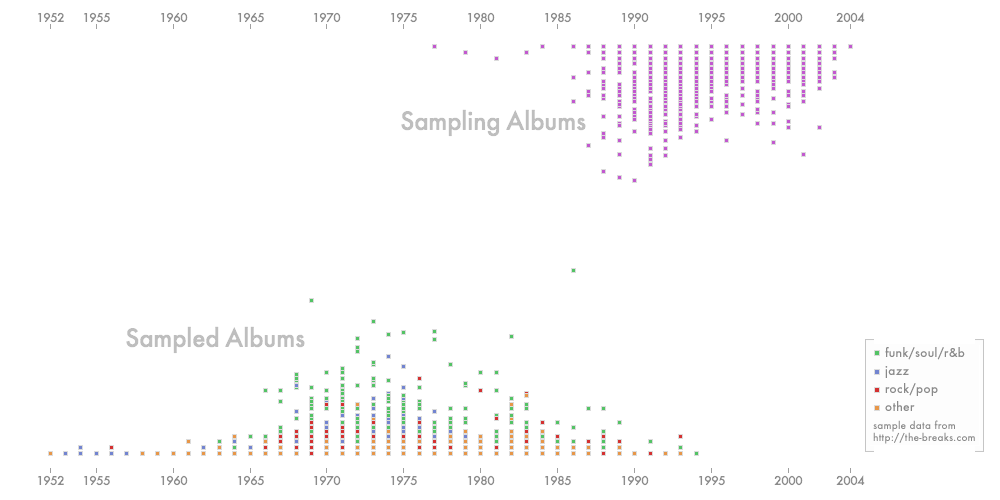Everything is derivative. Take advantage of that. “New” ideas are the next step in an extensive network of existing people and ideas. If we can get the data and reconstruct the network, we can analyze it and understand where branches of a network have the potential for innovation.
Read More »Blog
Using Science to Build a Dynamic Collaboration Engine
“Good ideas are getting harder to find,” Exaptive CEO Dave King quotes from a recent paper by MIT and Stanford researchers. He points to the skyrocketing number of researchers employed in the U.S. and contrasts it with the inverse slope on a chart monitoring efficiency of researchers along the same timeline. “Those growing number of researchers are failing to produce value that outpaces what we’re spending to innovate.”
Read More »Modern Research: Faster Is Different
Faster is different. It sounds strange at first because we expect faster to be better. We expect faster to be more. If we can analyze data faster, we can analyze more data. If we can network faster, we can network with more people. Faster is more, which is better, but more is different.
Read More »Owning the full-stack: A homesteading analogy on software, innovation, and freedom
Have you ever met a homesteader who owns a mansion? Me either. My neighbor, Bill (80), is a homesteader who tries to be as self sufficient as possible. From what I can see, it’s an immensely rewarding and humble existence. Life-satisfaction oozes out of his every pore and, eventually, even enduring the hardships must have become rewarding to him.
Read More »Optimizing a Team for Innovation or The Origins of the Sticky Note Exercise
So many fantastic quotes are attributed to Albert Einstein. If you hear our CEO Dave King speak, he may bring up his favorite: “Combinatory play seems to be the essential feature in productive thought.” To have an aha moment, we have to play with a challenge from a variety of perspectives. We have to build collaborative teams to tackle complex problems.
Read More »Moving Beyond Data Visualization to Data Applications
One thing we love doing at Exaptive – aside from creating tools that facilitate innovation – is hiring intelligent, creative, and compassionate people to fill our ranks. Frank Evans is one of our data scientists. He was invited to present at the TEDxOU event on January 26, 2018.
Read More »Epiphanies on Abstraction, Modularity, and Being Combinatorial
Six months ago I didn't understand the concept of abstraction. Now it comes up almost daily. It’s foundational to my thinking on everything from software to entrepreneurship. I can’t believe how simple it seems. When I finally grokked abstraction, it felt like my first taste of basic economics. Given a new framework, something that had always been there, intuited but blurry, came into focus.
Read More »The True Meaning of Catalyst, Crescendo, and Adaptation
People sometimes ask me what our company’s name means and why we chose it. The explanation often leads to discussions about similar but different terms. So I thought I’d use this blog post to explain, hopefully illuminate and while I’m at it, to correct some usage that’s bugged me for some time. Actually, let’s start right there.
I'm not sure where accuracy becomes pedantry, but there are two words - catalyst and crescendo - that instantly make my ears prick up when I hear them, only because I've heard them used incorrectly for long. One is from science and one from music, two things I tend to obsess about.
Read More »I think I was 10 years old when my dad brought home our first microwave oven. It was an imposing black box that weighed a ton and had scary warning labels that mentioned radiation. The only time I had ever heard mention of radiation before was in regard to the atom bomb. We felt like we were supposed to run for cover whenever we turned it on, but, like everyone else I knew who had one, we did just the opposite. We huddled around it. We brought our noses right up to the translucent window, and watched, mesmerized in wonder, as the food inside got zapped by mysterious, limitless, invisible energy. When the timer beeped, and the door opened to reveal a steaming bowl of soup that had been cold only a minute ago, it seemed like a miracle. I remember those early days with the microwave vividly – experimenting with eggs, and chocolate syrup, and the off-limits gold-rimmed fine china that would send off an awe-inspiring barrage of orange sparks after just 15 seconds. Just 15 seconds! 15! I think that was the most important thing of all about the microwave oven – not what it did to my food, but what it did to my sense of time.
Read More »Recent Posts
Posts by Author
- AIBS BioScience Talks (1)
- Alanna Riederer (1)
- Austin Schwinn (2)
- Clive Higgins (3)
- Dave King (7)
- Derek Grape (2)
- Dr. Alicia Knoedler (2)
- Frank D. Evans (4)
- Jeff Johnston (1)
- Jill Macchiaverna (9)
- Josh Southerland (1)
- Ken Goulding (1)
- Luke Tucker (3)
- Matt Coatney (3)
- Matthew Schroyer (4)
- Mike Perez (10)
- Sandeep Sikka (1)
- Shannan Callies (2)
- Stephen Arra (1)
- Terri Gilbert (2)
- Tom Lambert (2)
Posts by Tag
- Innovation (19)
- collaboration (19)
- team building (17)
- Data Applications (15)
- Data Science (14)
- collaborate (13)
- new idea (13)
- Data Visualization (12)
- cognitive city (11)
- cognitive network (11)
- teambuilding (11)
- discovery (10)
- thought leadership (10)
- Exaptation (9)
- research (9)
- technology (8)
- Data Exploration (7)
- Platforms (7)
- Data + Creativity (6)
- Text Analysis (6)
- open data (6)
- software (6)
- tech (6)
- Big Data (5)
- Network Analysis (5)
- conference (5)
- ethnographics (5)
- human-computer interaction (5)
- innovation software (5)
- network diagrams (5)
- Communicating About Data (4)
- Dataflow Programming (4)
- Design (4)
- HCI (4)
- Platform (4)
- Rapid Application Development (4)
- artifact (4)
- co-production (4)
- innovation management software (4)
- startup (4)
- use case (4)
- women in tech (4)
- attribute (3)
- entrepreneurship (3)
- ethnographic (3)
- ethnography (3)
- Abstraction (2)
- Data-driven Decision Making (2)
- Machine Learning (2)
- PubMed® Explorer (2)
- User Interface (2)
- algorithm (2)
- entrepreneur (2)
- 3d Visualization (1)
- Financial (1)
- Netflix (1)
- building models (1)
- hackathon (1)
- hairballs (1)
- interdisciplinary (1)
- knowledge graph (1)








